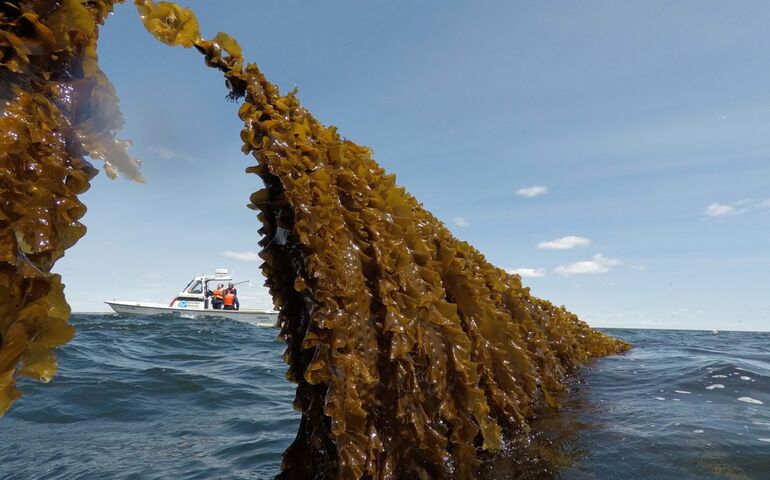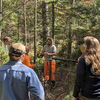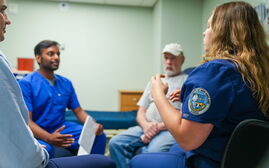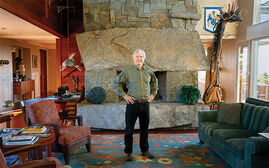UNE chosen as U.S. partner for international aquaculture project
 Courtesy / UNE NORTH
Building on agreements developed with countries across the North Atlantic, the University New England was chosen as the U.S. representative to the AquaVitae Consortium, a new international research and industry enterprise.
Courtesy / UNE NORTH
Building on agreements developed with countries across the North Atlantic, the University New England was chosen as the U.S. representative to the AquaVitae Consortium, a new international research and industry enterprise.
The University New England has been chosen as the U.S. representative to the AquaVitae Consortium, a new international research and industry enterprise formed to accelerate the development, education and communication of sustainable aquaculture in the nations bordering the Atlantic Ocean.
UNE joins 35 other partners in the $8.9 million project, which is funded by Horizon 2020, a program of the European Commission.
Two of UNE’s programs, the School of Marine Programs and UNE NORTH: The Institute for North Atlantic Studies, will play key roles in the project.
UNE NORTH convenes stakeholders from Maine and Nordic countries such as Iceland to develop research, industry and community partnerships.
Over the next four years, the project involves developing training and education to increase aquaculture production of “low-trophic” species (which are species that are low on the food chain) in 16 countries that border the Atlantic. In addition to ones in Europe and North America, the countries include Brazil, South Africa and Namibia.
UNE’s role, in partnership with the Norwegian Institute of Food, Fisheries and Aquaculture Research, will be to fund travel to partner institutions, collaborate in research and develop best practices.
“For UNE faculty and students, AquaVitae provides information and interactions with 35 consortium partners in higher education, national research institutes and industries involved in a wide range of aquaculture disciplines such as hatchery production, processing, resource management, economics, environmental monitoring, product development, marketing and consumer behavior,” Barry Costa-Pierce, executive director of UNE NORTH, said in the release.
Internationalization
Costa-Pierce told Mainebiz that UNE’s participation in AquaVitae builds on agreements UNE has developed with Iceland, Sweden and Norway.
“UNE is solidly committed to internationalization,” he said. “We thought this would be an amazing opportunity to create learning projects.”
For example, UNE and partners in Sweden will be holding workshops, starting this fall, on the development of nearshore aquaculture systems that are submerged beneath the water’s surface. That compares with systems that float at the surface. Aquaculture systems used to grow oysters along the Damariscotta River, for example, mostly use floating systems, he said. That’s generated opposition from coastal landowners.
“There’s lot of opposition to surface grow-out systems,” he explained. “We agreed that engineering for submerged production system was a high priority.”
Land-based aquaculture, using recirculating water systems, is another top priority.
“Maine will have at least four of these very large fish production systems on land,” he said. “Europe is far ahead on this. So we’re talking about UNE NORTH becoming the convening space for partnerships across the North Atlantic” to address topics like state-of-the-art practices and workforce training.
“Maine has an opportunity to be a global center of convening and expertise” in recirculation systems, he added.
New aquaculture species
AquaVitae’s purpose is to introduce new aquaculture species, products and processes across the Atlantic. The innovations include macroalgae, echinoderm species such as sea urchins, shellfish, finfish, and a process that farms several species together using waste from one species as feed for another.
The selections were based on their promising contributions to sustainable food and feed production. Eleven studies will be conducted across the Atlantic, with emphasis on developing new products from species like macroalgae and sea urchins, optimizing production in existing industries like shellfish and finfish, and moving toward zero waste.














0 Comments